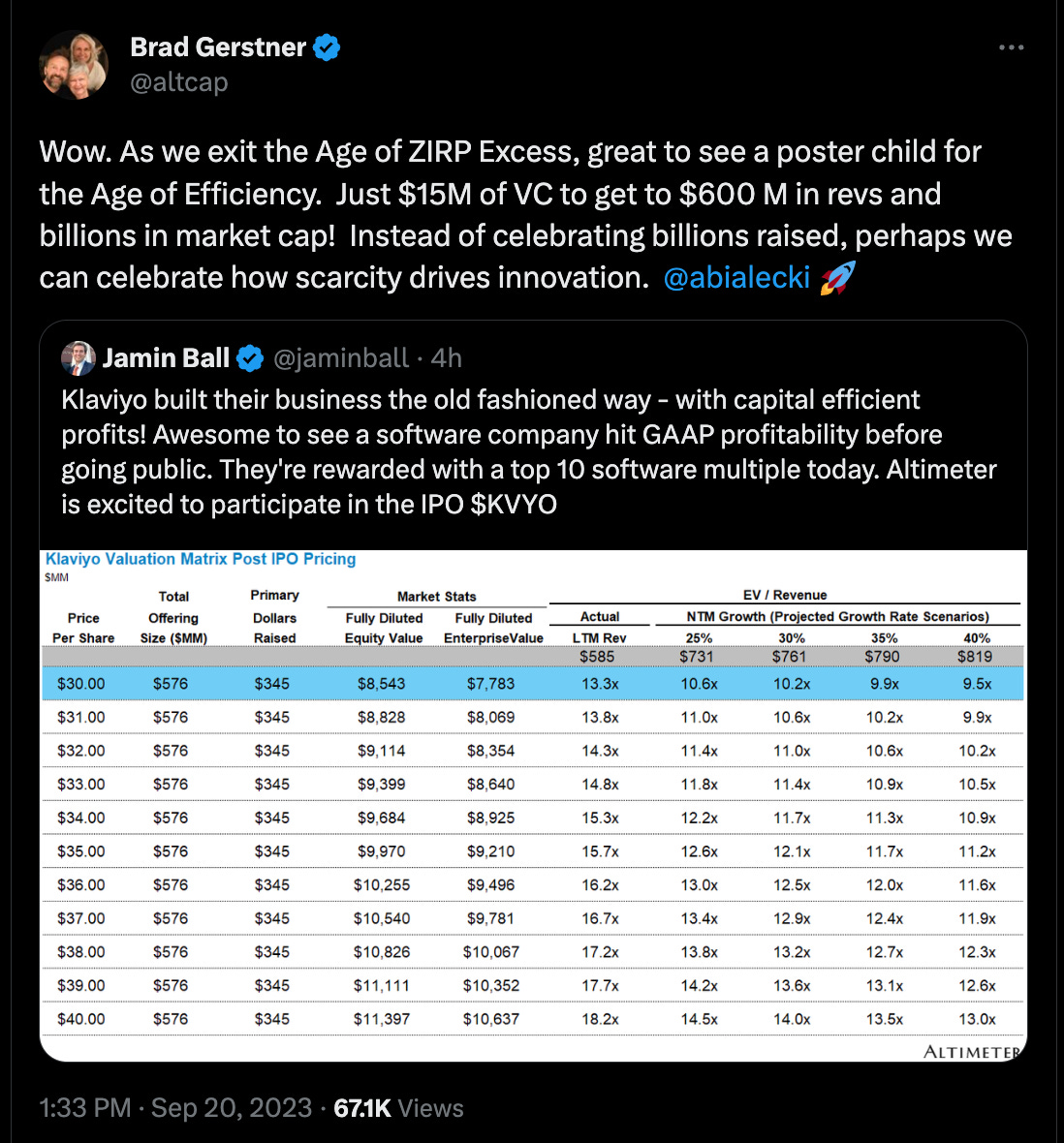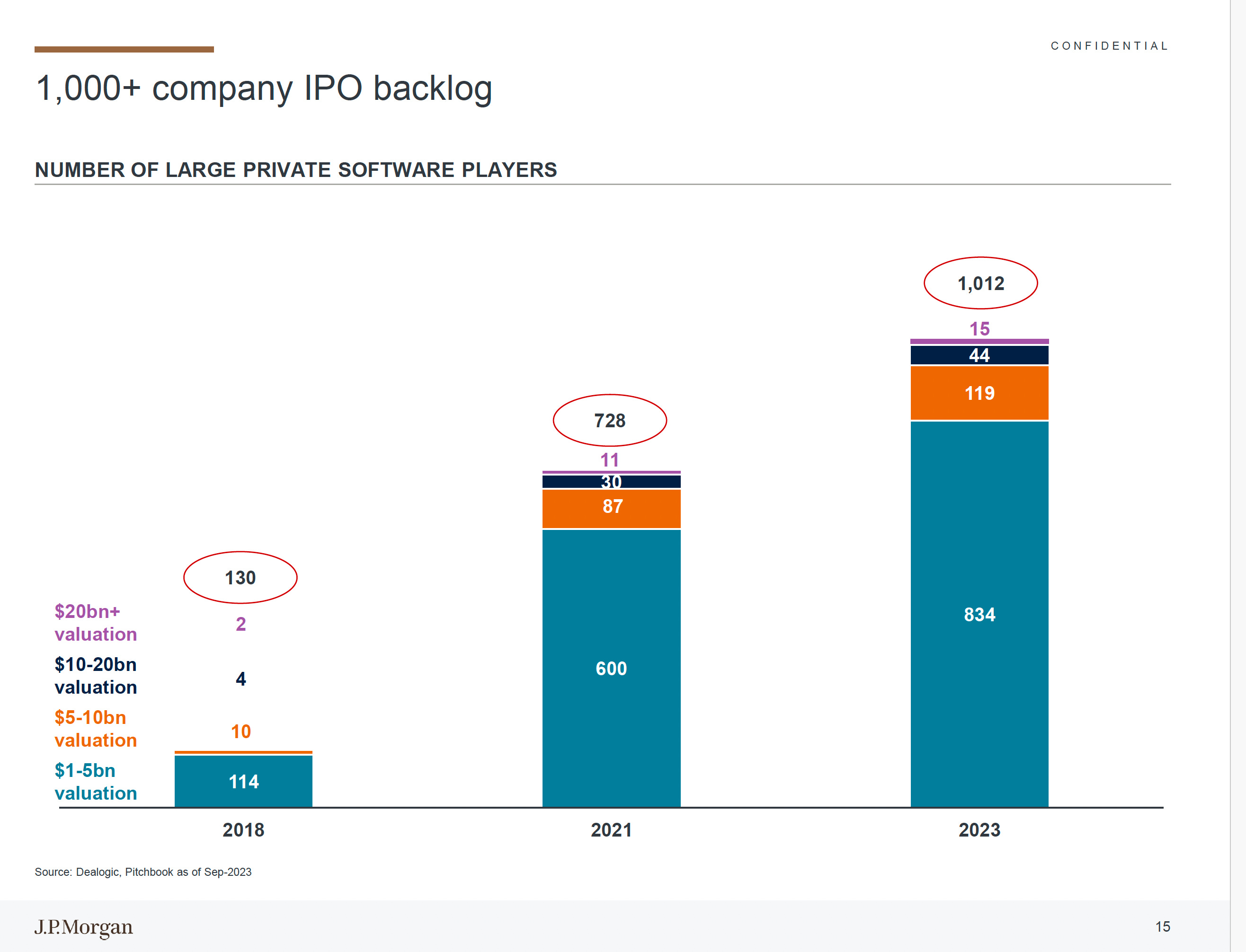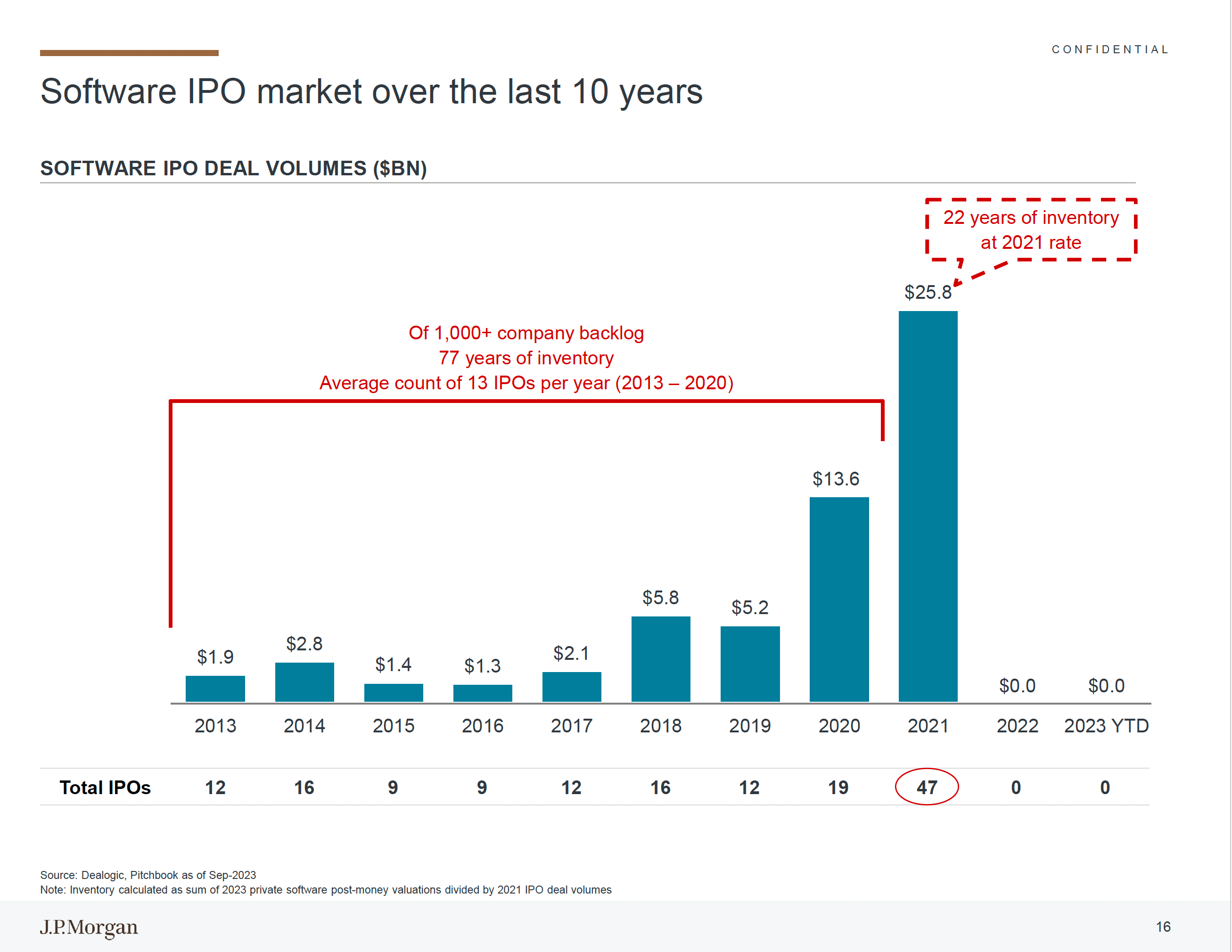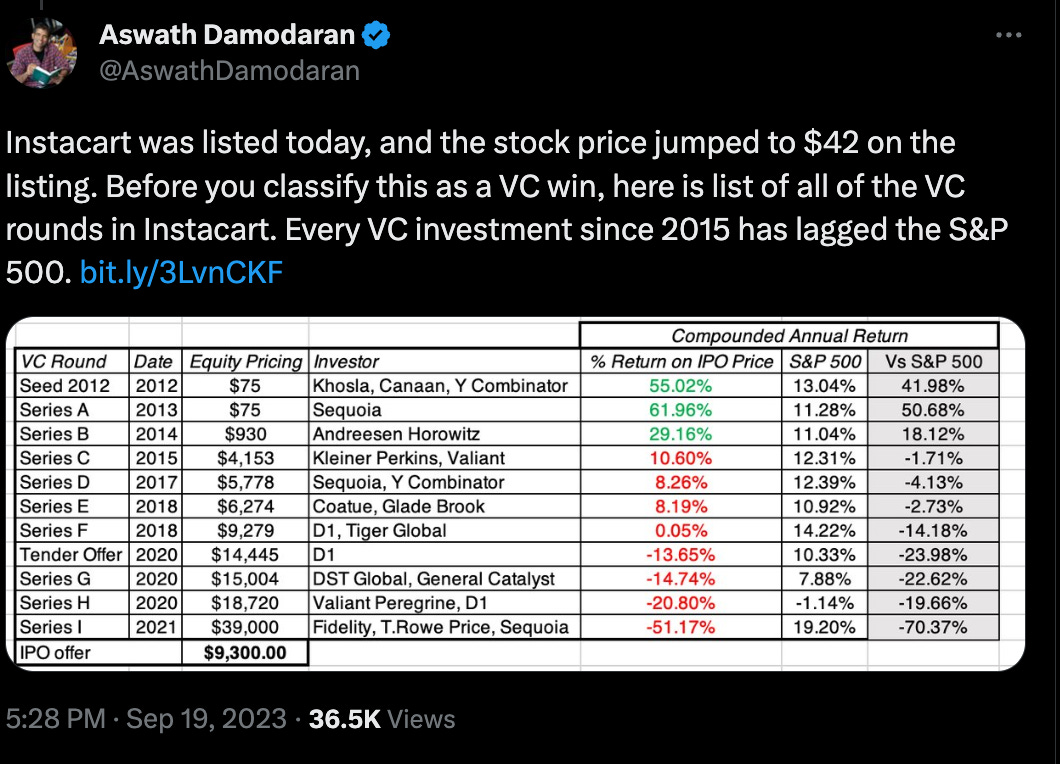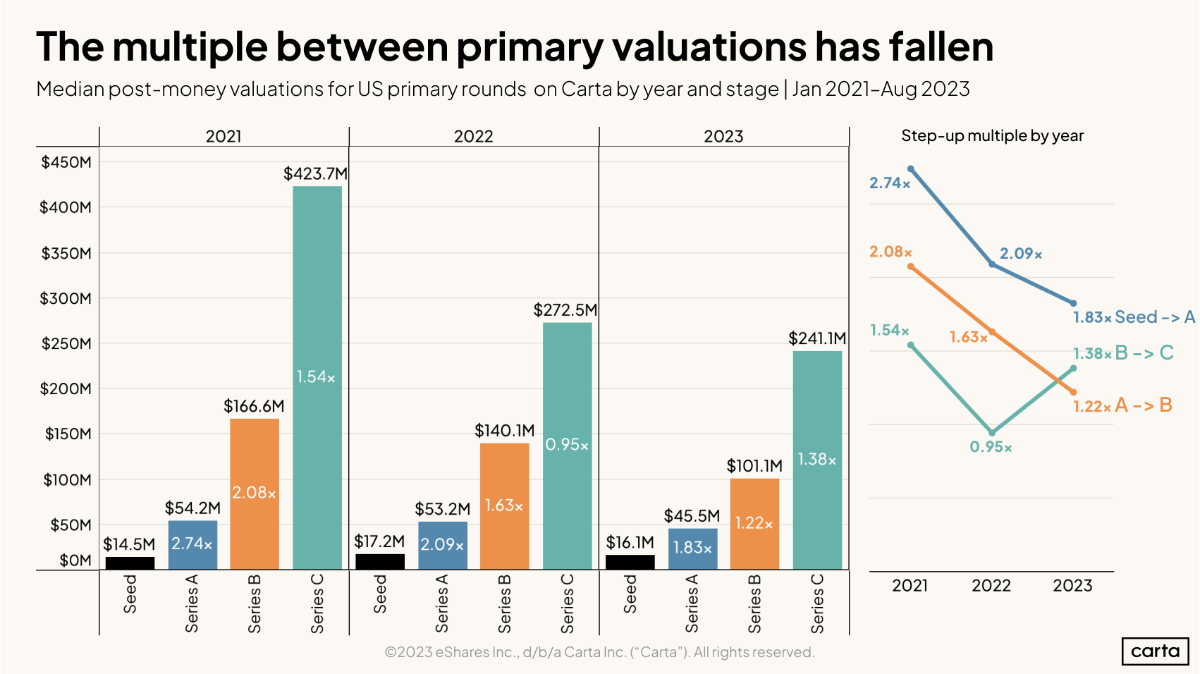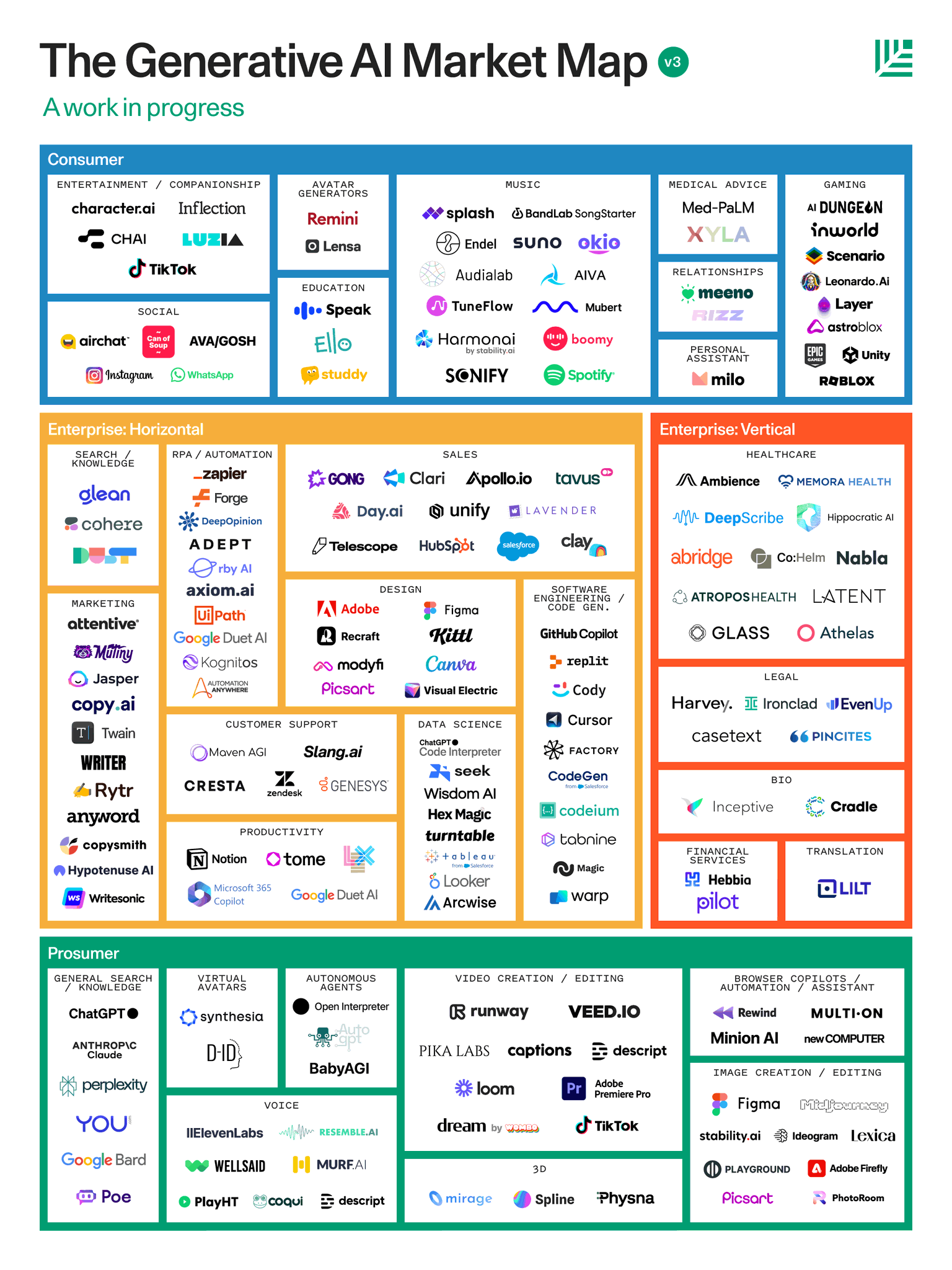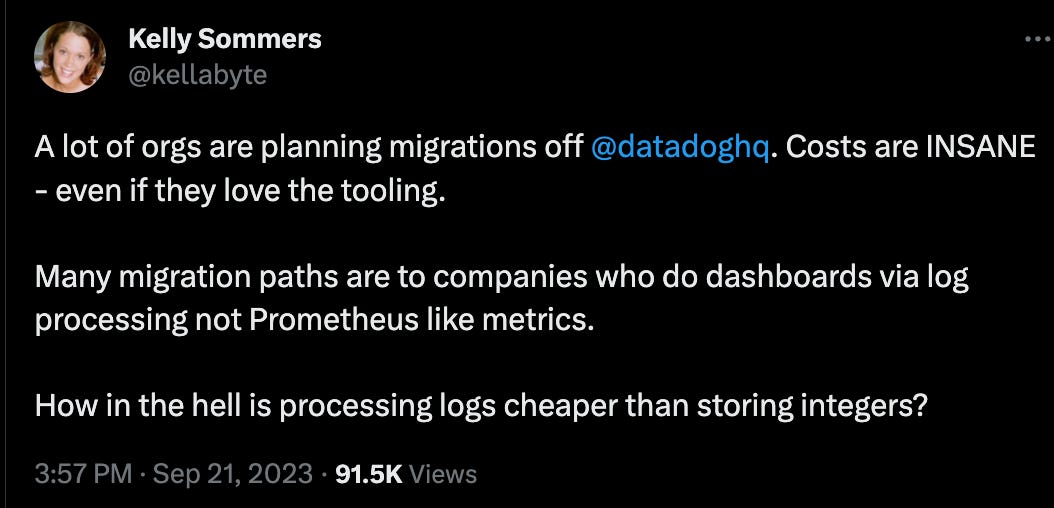| What a week! Splunk sells for $28B, Klaviyo and Instacart IPO and many are claiming we are back - liquidity is here, especially since these were the first tech IPOs in 21 months! The last venture-backed software companies to hold initial public offerings in the U.S. were HashiCorp and Samsara, which both debuted in December 2021, when the Nasdaq was near its peak and investors were paying a premium for growth stocks. Inflation spiked and interest rates rose in 2022, leading to a turn away from risk and the worst year for tech stocks since the 2008 financial crisis.
But wait - there’s more liquidity! Other exits or potential exits this week include 2 Israeli cybersecurity cos with Crowdstrike’s $350M acquisition of Bionic and Talon’s rumored sale to Palo Alto Networks for $600M. Many an enterprise investor is shouting LFG from the rooftops, and while folks making 💰 is always awesome, let’s dig a little deeper to better understand if we’re really back. Klaviyo is a unique company and while everyone wants a SaaS co like Klaviyo, not many will get there. Efficiency matters, and these are some insane numbers that many will not live up to so it will be interesting to see which SaaS co goes public next, especially when measured against a benchmark like this. More from Insider… "The biggest thing we talk about is you have to be willing to embrace constraints. And I've seen unbelievable creativity from folks across Klaviyo when you say, 'Hey, look, I need you to figure out this problem, but by the way, you don't get a team of 20 to figure it out. You need to figure it out,'" Bialecki said. "And it goes back to this ownership piece. I actually think people love that. They feel empowered." The story of Klaviyo shows there's no single right way to build a tech company. It doesn't demand startups prioritize growth over profitability or have a 415 area code. "There's a false choice here between being high growth and doing things efficiently," Bialecki told Insider. "It's not easy. And I can't say we're perfect, but it's possible."
If you believe how Klaviyo built its business around constraints, I can promise you that the large majority of 🦄s out there were built for a different era where constraints were nonexistent as all raised way too much 💰. Speaking of 🦄s, according to Matt Seiter at JP Morgan (Co-Head of Enterprise & Cloud IB), we have a massive backlog of up to 1000+ companies who are 🦄 that could go public. Even if we cut that down to 20% which actually have a chance, then we’re talking about 200 companies waiting, and I don’t see how the public market demand can meet that supply. Matt breaks it out further with an average count of 13 IPOs per year and if you use the peak 2021 rate of 47 IPOs, you end up with 22 years of inventory. Using my math of 200 potential IPO candidates and the 2020 rate of 19 IPOs (pre-Covid), you still have >10 years of inventory. What happens to the other 800 🦄? Some will go out of business, some will get acquired by larger public cos, some will merge with each other, and a select group will be able to go public if they can get to insanely efficient numbers and prove that it is more than just a one product company and more of a platform play. Expect M&A to accelerate in the next couple quarters as platforms matter. The IPO floodgates will not open but the brave with Klaviyo like numbers will come out of hibernation. Cybersecurity is on 🔥 with Splunk being bought for $28B and Bionic and Talon being acquired for $350M and $600M (rumored) respectively. While the dollar amount of Cisco’s acquisition of Splunk is 🤯, let’s take a step back and look at the industry dynamics as this deal shows the power of consolidation and is a sign of a maturing market. As I’ve written before, we have way too many point cybersecurity products, and if you look at my above comments, platforms matter for the next batch of IPOs and multi-product companies will be a must have. As the pendulum continues to swing towards vendor consolidation and one throat to choke vs. best of breed, companies like Palo Alto Networks, Crowdstrike and Cisco continue to gobble up cybersecurity companies who are willing to sell. Regarding Bionic and Talon, these are both awesome and amazing outcomes but the real question is how many more multi-billion dollar security companies will be able to succeed in an era of rapid consolidation and customers reducing their vendor count? Nir Zuk, founder of Palo Alto Networks, has some great commentary here, albeit slightly biased 😄: Israel should explore new opportunities beyond cybersecurity because this market is maturing," Zuk emphasized. "Cybersecurity is undergoing consolidation as larger companies expand and smaller ones find it increasingly challenging. We are witnessing discussions between Wiz and SentinelOne, and more such consolidations will likely occur. The realization is that focusing exclusively on a narrow niche within cybersecurity is unsustainable. In the end, every computing infrastructure market that matures undergoes significant consolidation, with only a few key players remaining." Who are these dominant players likely to survive? "Palo Alto, which has consistently advocated for consolidation over the years," Zuk noted with a laugh. "Microsoft is another key player, and additional cybersecurity companies are venturing into various sectors but avoiding direct competition with us and Microsoft. The landscape is evolving." What will happen to those companies that remain in the middle and don't participate in mergers? "Reaching billion-dollar sales figures will be exceedingly difficult for them. Currently, there are fewer than ten cybersecurity companies with revenues of this magnitude: Palo Alto, Microsoft, Cisco, Fortinet, Zscaler, Check Point, and CrowdStrike. Neither we nor Microsoft achieved these revenues through organic growth but rather through smart acquisitions. We always prefer to acquire rather than develop on our own."
It’s not impossible as there are still some private cybersecurity 🦄 who are going after markets big enough and executing well enough to be the new generation of the big 10. Cato Networks is one of them in the SASE market as it just raised a $238M round at a $3B valuation. Of note and not mentioned in this TC article is the last round was done 2 years ago at $2.5B valuation so if you assume the $238M was primary equity, the pre-money was around $2.75B which is pretty much a flat round from 2 years ago. We’re back certainly for first money investors but not so clear for later rounds, especially in a world where multiples have compressed. Let’s look at Instacart (not an enterprise tech co) for illustrative purposes. Any investor after the Series B round is underwater after the IPO! Now let’s do a hypothetical on Talon if it were sold today for $600M. According to the article, the company has raised $126M since founding 2021 so that is insane from a timing perspective, 2 years from company formation to $600M exit. The $100M Series A was announced a little over a year ago in August 2022. Back of napkin math assuming the company sold 20-25% of the business would imply a $400-500M post-money valuation which would mean the Series A investors will return $120-150M on a $100M investment. That’s not a venture return I’m sure the investors were looking for, but perhaps they understand the LT path ahead with more dilution and risk and by taking money off the table today, they can reallocate to their other portfolio companies pursuing the multi-platform play. It’s a different story for the first money in investors - if we assume that the initial $25M was raised at a $100M post money then they will make 6x on that in 2 years which is incredible. Now let’s look at Bionic. Bionic has raised a total of $82M with the last round being $65M. If we apply the same 20-25% dilution math we can imply a last round valuation between $260M and $325M. Under this scenario, the last round investors will get a slight return on its money but after subtracting $75M or so from the $350M exit price, you have $275M of equity value to be divided between the seed, Series A investors and founders. Once again first in wins and the later rounds not much. If these super well capitalized cybersecurity companies are selling out now, what does that mean for the others who are not in a position of strength? Yes, you guessed it, the floodgates for cybersecurity M&A have opened and not all will have a fairy tale ending.
What’s the conclusion? In a world of compressed multiples, the need for insane performance to IPO, and one where $600M outcomes are pretty awesome, the folks who will make money are founders and first money in. Because of the ZIRP era and the massive backlog of overvalued 🦄, it will be super hard for those later round growth investors to make any 💰 as shown by the Instacart IPO which looks like many a 🦄 on that JP Morgan IPO backlog slide. It’s also no surprise that most of the $1B+ multistage firms have all pointed their howitzers at the seed stage to take option bets and be first money. According to the latest data from Carta, the seed stage is the only round since 2021 that has increased in median valuation. In addition, late stage investors have gotten the religion as the step ups between rounds have fallen dramatically for Series C from a post money of $423.7M to $241M in 2023. This is going to be an insane Q4 coming up! As always, 🙏🏼 for reading and please share with your friends and colleagues!
👇🏼💯 How VC returns work from Jason Lemkin (SaaStr) VC funds need about $2B in “exits” for each $50m they raise Why? True average ownership of 10% fully-diluted x $2B = $200m. That’s 4x “gross” $50m or just about good enough today. So raise a $300m fund, you need about $12B in exits. Or better.
Traits of great founders👇🏼🧵 from Zach Weinberg 🧵 Things I've noticed great founders almost always do well: -Can speak to the market/competition/strategy in specifics + they know tiny product details without having to ask an employee (aka they are not satisfied with high level facts). - Immediately follows up if there's any outstanding ask (intro, blurbs, candidate questions). - On top of their emails, usually never more than 24 hour response times. - Can give very specific examples and lots of them (either product or customer or sales process). - No little mistakes. No misspellings, they get people's names right, proper punctuation in writing. - They immediately jump at any opportunity to meet someone who could be a good future employee, they will chase down an intro…
👇🏼 Founder beware from Siqi Chen (founder of runway ) founder protip: when you get outreach from multiple vc associates out of nowhere, your competitor is out raising and they’re just doing their homework.
Focus on 1 to 2 things and do them well (co-founder Netflix)
Does AI improve productivity? If so, by how much? Ethan Mollick (Wharton Professor) worked with BCG on a detailed analysis tracking BCG consultants performing several tasks with and without AI Consultants using AI finished 12.2% more tasks on average, completed tasks 25.1% more quickly, and produced 40% higher quality results than those without. Those are some very big impacts… We also found something else interesting, an effect that is increasingly apparent in other studies of AI: it works as a skill leveler.
Ok, this is getting silly - everyone is an AI co…latest Sequoia market map Pure play AI startup Writer AI, just a few years old, raised $100M at between a $500-750M post-money according to TechCrunch. Writer offers a secure platform to enables customers to build just about any generative AI application on top of its business data sources, and delivers accurate answers and content that are fine-tuned on a customers' own data and follow its own AI guardrails. So what sets Writer apart? Well, for one, it claims to have trained its fine-tunable models on business writing that isn’t copyrighted, a key point at a time when the copyright status of AI-generated works in the U.S. remains somewhat nebulous. Writer also asserts that its models are “smaller” than average and thus more “cost-effective”; transparent in the sense that customers can inspect the models’ code, features and data; and never trained on customer data.
AI Security market 🔥 - “Inside the startup market trying to capitalize on AI security” (Axios) - Hidden Layer, Calypso, Protect AI (one of my port cos) all mentioned Yes, but: Enterprises are still in the early stages of figuring out how they'll use AI internally, and until they land on an answer, they're not going to know what kinds of AI security startups to buy from, Litan said. Gartner estimates that the market of AI security and risk management companies will be worth $150 million by 2025, Litan said. "It's very much an influx market," she added. "There's definitely demand, it's just early."
And who’s going after Datadog? Good reminder 👇🏼 from BuccoCapitalGuy Going through annual planning this year and let me just say: Some of these nice-to-have, point solution, software companies are going to get taken to the fucking woodshed next year
There still are preemptive term sheets with “name your price” for infra startups - MotherDuck raised a $52.5M Series B round led by Felicis (from co-founder Jordan Tigani) We hadn’t planned on doing a raise until at least next year. For months I had been telling investors “no, we still have an embarrassing amount of runway, we’re not raising any time soon”. When talking to the VCs I liked, I added “but I promise to tell you when we are”. Those kinds of promises get tricky when someone slips you a term sheet at a dinner party; you have to decide whether to reward the conviction of the preemptive first term sheet or follow through on your commitments. We chose the latter, but decided to run a highly abbreviated process; just three days of conversations with potential investors. When motivated, VCs can move very quickly. To make things more complicated, this coincided with our launch, so the day of our launch party I was doing laps around South Park trying to make sure to give folks a chance at the round. The Felicis team had the simple pitch: “tell us what you want”, and they wrote a term sheet matching what I had described. Sometimes you have to be careful what you ask for, since the precise wording made it harder to calculate pro-rata shares from existing investors. Luckily, most of these folks wanted to increase their stake anyway, so it didn’t matter.
Databricks vs. Snowflake continued - side by side comparison from when Snowflake IPOed to where Databricks is today - great analysis from Tomasz Tunguz Crypto not dead, Citi to pilot blockchain services for institutional clients Citi Token Services provides corporate treasurers with a new tool to manage global liquidity on a just-in-time, programmable basis. Frictions related to cut-off times and gaps in the service window will be reduced,” CTTS global head of digital assets Ryan Rugg said in a statement.
Commentary above all market related… What's Hot in Enterprise IT/VC is free today. But if you enjoyed this post, you can tell What's Hot in Enterprise IT/VC that their writing is valuable by pledging a future subscription. You won't be charged unless they enable payments. Pledge your support | |

